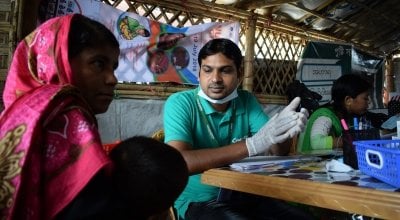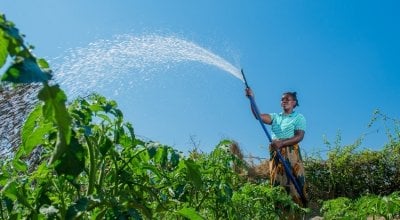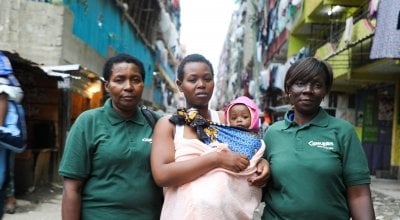
Read our 2024 annual report

Knowledge Hub
Why are we in Bangladesh? Bangladesh is home to over 174 million people in a country that includes the world’s largest refugee camp in Cox’s Bazar.
After years of remarkable progress in poverty reduction, the country now faces challenges, stemming from global and domestic factors like persistently high inflation, financial sector instability, and political uncertainty.
Challenges remain despite progress
Bangladesh is due to graduate from the UN’s Least Developed Countries list by 2026. Poverty declined from 11.8 percent in 2010 to 5.0 percent in 2022, based on the international poverty line of $2.15 a day. Moreover, human development outcomes improved along many dimensions, like a reduction in infant mortality and stunting, and an increase in literacy rates.
Despite these gains, inequality has slightly narrowed in rural areas and widened in urban areas. Urban population in Bangladesh was reported at 40.47 % in 2023, according to the World Bank collection of development indicators, and by 2050 that percentage is projected to grow to 56%.
Latest achievements
Health system strengthening
We have strengthened the existing community clinics to improve the delivery of services by frontline community health workers. Through midwifery-led health services, we have ensured the access of affordable maternal and primary healthcare, and we have ensured that services are responsive, resilient, and accessible to all.
Climate resilience and livelihoods
Rohingya and humanitarian response

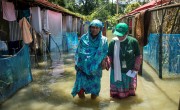

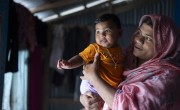
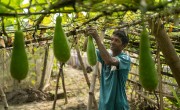
How we're helping Bangladesh
Concern focuses on addressing extreme poverty, inequality and risk and vulnerability through long term programming and emergency response. Our aim is to bring sustainable, positive changes in the lives of people living in extreme poverty in Bangladesh.
Latest from Bangladesh
Concern Bangladesh Resources
Concern Worldwide Bangladesh’s Country Strategic Plan 2022 - 2026 aims to contribute to bringing sustainable, positive changes in the lives of people living in extreme poverty in Bangladesh.
Other ways to help
Corporate support
Is your company interested in working together for a common cause?
Fundraise for Concern
From mountain trekking to marathon running, cake sales to table quizzes, there are lots of ways you can support our work.
Buy a gift
With an extensive range of alternative gifts, we have something to suit everybody.
Leave a gift in your will
Leave the world a better place with a life-changing legacy.
Volunteer with Concern
The lots of ways to get involved with our work as a volunteer
School fundraising
Without the generous support from schools, we wouldn't be able to do the work that we do.






